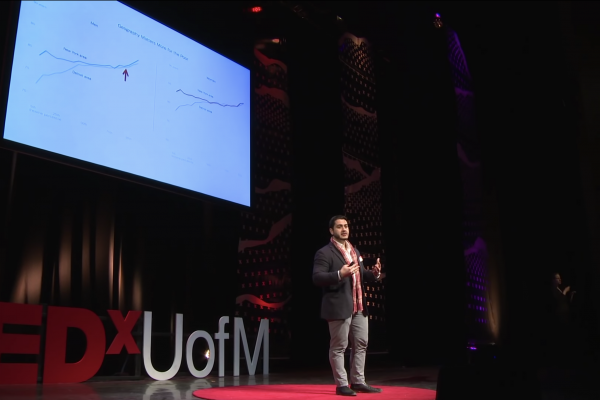Dec 16, 2019
Abdul El-Sayed, a Michigan-born American of Egyptian descent who, last year, very nearly became the first Muslim governor in U.S. history. Abdul is a professor and medical doctor turned politician and civil servant, who has a fantastic new podcast with on public health called America Dissected. Additionally, his new book, Healing Politics, will be out on May 5, 2020 and is now available for pre-order.
Read the Full Article

Already a subscriber? Login
